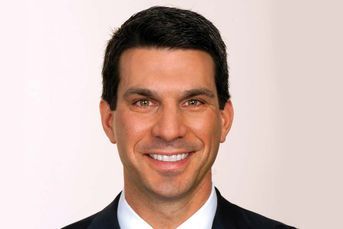Latest proposal seeks to overcome Wall Street opposition
Investors could yet get a peek into the roadshows that companies use to tout upcoming IPOs, if federal…
Investors could yet get a peek into the roadshows that companies use to tout upcoming IPOs, if federal regulators can overcome the wrath of Wall Street insiders.
In its latest effort, the Securities and Exchange Commission is resurrecting part of a 1998 proposal that was labeled “the aircraft carrier” because of its bulk. The proposal never got out of dry dock, partly due to opposition from Wall Street.
David Martin, director of the SEC’s division of corporation finance, while providing few details about the new proposal, says the division “is working feverishly” to draft it.
Limited access
A roadshow typically involves a cross-country tour to tout the wonders of a company headed for an initial public offering. Companies usually limit invitations to institutional investors. But one component of the latest proposal could force companies to use the Internet to give individual investors better access to roadshows.
Some brokers and online investment banks already have gotten SEC approval to do that.
That element of the new proposal, though more limited than the 1998 plan, will likely rankle many investment bankers and institutional investors.
The SEC might also require companies to have marketing materials used in roadshows on file for public inspection, according to insiders.
But critics say such a mandate would essentially leave pre-IPO companies with no way to generate interest and excitement among potential investors.
“You’d essentially eliminate the roadshow as a marketing tool because you’d never get lawyers to agree to what’s in the filed document,” says Scott Kursman, assistant general counsel at the Securities Industry Association in Washington, which represents investment banks and brokerage houses.
“If you don’t let a company market itself and show off its qualities, it will never raise a dime,” Mr. Kursman says. “The marketing component is an integral part of raising capital. You would force the marketing effort into a private, one-on-one situation.”
Securities regulators and investor advocates are concerned that roadshow discussions may go beyond information in the prospectus.
Retail investors can get their hands on the prospectus fairly easily. Companies must file a registration statement, called an S-1, with the SEC. The S-1 includes the preliminary prospectus, and any SEC changes following regulatory review are filed subsequently.
Mr. Kursman says the SEC historically has wanted the prospectus to be the average investor’s reference for evaluating a company. Giving them access to marketing materials flies in the face of that philosophy, he says.
“I guess the SEC will have to grapple with the idea that there’s an alternative [source] that investors may go to,” he says. “But in the case of a roadshow, it’s a marketing document. And the SEC has never wanted any marketing material in a prospectus.”
Even within the SEC, there are concerns about changing the rules.
“There is the potential for creating a very flat field with diluted roadshow content,” SEC Commissioner Laura Unger said in a speech in May.
“As we move forward, we must recognize that liberalizing roadshow procedures will likely result in investors receiving new types of information – information that they may not be able to evaluate,” she said.
But Mr. Martin says he is in constant touch with Ms. Unger. “I don’t think she and we will be too far afield on this in the end. By the time we come up with something, it should be agreeable to everyone.”
Mr. Martin also says that the option of doing absolutely nothing is still on the table. “We’re in the context of a new administration,” he says. “So in theory we could be told to do nothing. But I suspect the administration, or the new chairman, will want to move on this.”
W.R. Hambrecht & Co., a San Francisco online investment bank, is among the companies that already deliver IPO roadshows to their retail customers on the Internet.
But it isn’t the same roadshow that institutional investors get, says Matt Regan, director of Hambrecht’s retail brokerage business in Berwyn, Pa.
Mr. Regan says the companies also want investors to get the full story. “Typically, those companies like to get the message out to those who are not institutional investors,” he says. “There’s no resistance at all.”
Learn more about reprints and licensing for this article.





